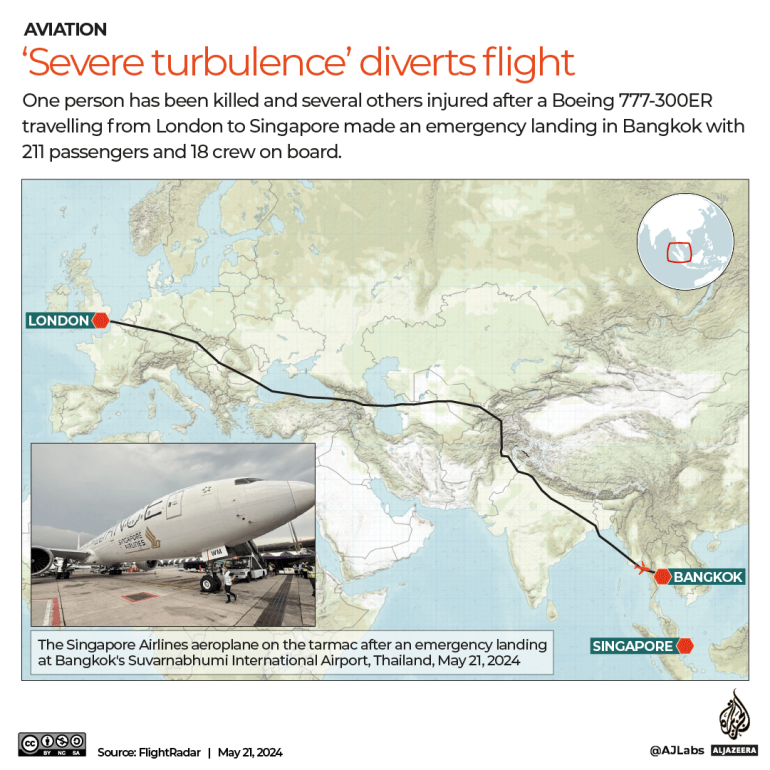Mr. Masagos Zulkifli, Minister for the Environment and Water Resources, urged members of the public and stakeholders to stay vigilant and continue their efforts in the fight against dengue. Over 4,000 dengue cases have been reported since the start of this year, which is about double the 2,026 dengue cases reported in the same period in 2019. A key concern is the growing evidence of a sustained switch in the predominant dengue virus serotype, which is historically associated with dengue outbreaks in Singapore. Speaking at the main launch of the National Dengue Prevention Campaign 2020 at the Central District, Minister Masagos called for concerted and collective effort to step up prevention of mosquito breeding to suppress dengue transmission, in the run up to the traditional peak dengue season.
More Dengue Cases Expected than in 2019
The National Environment Agency (NEA) has seen an increase in Dengue virus serotype 3 (DENV-3) cases over the past four months. The monthly proportion of DENV-3 cases in February was approximately 48 per cent, almost double the proportion of Dengue virus serotype 2 (DENV-2) cases at 26 per cent. NEA is monitoring the DENV-3 situation closely, to ascertain if it will prevail as the predominant serotype, replacing DENV-2. The rise in proportion of DENV-3 cases is of concern, as we have not had dengue outbreaks driven by DENV-3 in Singapore for almost three decades. This means that our population has lower immunity to DENV-3, and consequently a large proportion of our population is susceptible to DENV-3 infection.
The combination of a potential sustained change in the predominant Dengue virus serotype, coupled with the high Aedes aegypti mosquito population in some areas, and the unusually high number of dengue cases seen currently, could create a momentum of transmission that may drive even more dengue cases when we enter the warmer months ahead. The warmer months from June to October usually see higher transmission of dengue in Singapore, due to accelerated development of the Aedes mosquito and shorter incubation period of the Dengue virus. NEA expects an increasing trend of dengue cases in the second half of 2020, if we do not take additional proactive steps now to keep the mosquito population in check.
Concerted Community Efforts Needed
In view of the dengue outlook for 2020, NEA has brought forward to March the launch of the annual National Dengue Prevention Campaign, ahead of the traditional mid-year peak dengue season, to rally the community to fight dengue by calling on everyone to do his part to prevent mosquito breeding and thus dengue transmission. By raising the dengue alert early and facilitating preemptive measures, NEA hopes to mitigate the increase in dengue cases in the coming months. The islandwide outreach efforts across the five districts, which follow from the campaign launch, will also be extended over a period of two months until May 2020 for this year‘s campaign, to sustain awareness at a high level. These efforts will be jointly led by local Grassroots Advisers and Leaders, with support from NEA’s Dengue Prevention Volunteers (DPVs) (see Annex A for more details). Together, they will conduct house visits to advise residents on common mosquito breeding habitats, and share dengue prevention tips. In particular, the campaign this year will focus on raising residents’ awareness that clean and stagnant water in their homes, as small in volume as the size of a 20-cent coin, can be potential breeding habitats for mosquitoes, and therefore it is critical to routinely check such common potential habitats as they perform their household chores.
Community-led outreach efforts play a key role in educating residents and protecting our neighbourhoods from dengue, and they complement the efforts of NEA and other agencies, in preventing dengue transmission in Singapore. Over the past three years, more than 3,000 mosquito breeding habitats were linked to containers and receptacles found at public areas. About 65 per cent of these receptacles – such as plastic containers and empty drink cans – had been discarded as litter by people. We have also observed a 90 per cent increase in the detection rate of Aedes mosquito larval habitats found in homes, over the past three years. In addition to regularly doing the Mozzie Wipeout, members of the public should always bin their litter to prevent it from becoming unintentional mosquito breeding habitats. This is also an important and key good public hygiene habit in our current battle against COVID-19 (Coronavirus Disease 2019). This year, the messaging to the public, and especially residents living in dengue cluster areas or in areas with high mosquito population, will also be strengthened to include additional proactive measures that individuals can take to protect themselves, their families and loved ones. Residents will be advised to apply mosquito repellent as a protective measure and to spray insecticide in their homes, targeting dark areas where adult mosquitoes are likely to be resting. They are also strongly urged to cooperate with NEA officers and facilitate their checks and indoor misting in their homes.
To-date, NEA has trained more than 2,000 DPVs, comprising Grassroots Leaders, People’s Association Community Emergency and Response Teams (CERT) members, students, senior citizens and residents. These volunteers help to advise residents on common mosquito breeding habitats and share dengue prevention tips, during house visits and community events, and check for potential mosquito breeding habitats at common areas around neighbourhoods (refer to Annex B for the roles of residents and DPVs in preventing dengue).
Status of Current Efforts for Dengue Prevention
NEA, together with the various agencies and other stakeholders represented in the Inter-Agency Dengue Task Force (IADTF), including Town Councils, have stepped up checks leading up to the traditional peak dengue season, to remove potential mosquito breeding habitats in public areas and housing estates. Given the projection of high dengue cases this year, agencies and stakeholders have started to meet earlier and expect to meet more regularly throughout the year. Community Volunteers and Grassroots Leaders have also been working hard to raise awareness on dengue prevention. Of the 498 clusters notified this year, about 80 per cent have been closed, with the concerted efforts of our partners and the community. The 183-case cluster at Begonia Drive, 154-case cluster at Elias Road, 148-case cluster at Jalan Bangau, and 106-case cluster at Gangsa Road, were closed in the first three months of the year. However, there are still large clusters located at Jurong West Street 91, Ang Mo Kio Avenue 3, Pavilion Circle and Berwick Drive. All stakeholders need to work together to urgently reduce the mosquito population.
In 2019, NEA conducted about 900,000 inspections islandwide for mosquito breeding, including about 6,400 checks at construction sites, and uncovered more than 16,000 mosquito breeding habitats. Between January and December 2019, about 8,700 enforcement actions have been taken against owners of premises for mosquito breeding. About 490 summonses and 26 Stop Work Orders were issued to construction sites, and 15 contractors were charged in court for repeat offences.
Technology and Innovation in NEA’s Dengue Prevention Efforts
For NEA‘s mosquito surveillance and vector control operations, some new tools and capabilities will also be available this year. In January 2020, NEA completed the deployment of Gravitraps to private landed estates, complementing those deployed at HDB estates since 2017. We now have more than 64,000 Gravitraps deployed islandwide, to monitor the Aedes mosquito population in Singapore. The data on mosquitoes caught in these traps have guided NEA’s inspection focus, thus enabling more targeted deployment of limited manpower resources. The traps have also played a role in helping NEA remove adult Aedes aegypti mosquitoes, including female mosquitoes infected with dengue. Deployment of Gravitraps complements the efforts of the community, owners of premises and other stakeholders, in suppressing the mosquito population.
Since late 2019, NEA has also started to share data on areas with relatively higher Aedes aegypti mosquito population with members of the public, Town Councils and other stakeholders. The data is also publicly available on our NEA website and myENV app. This proactive effort supplements the existing comprehensive national dengue prevention and control efforts, which bring together our key stakeholders to focus on collective mosquito prevention measures. This will serve as a useful lead indicator for early intervention, to heighten awareness of the community to the risk of dengue and facilitate preemptive targeted action by key stakeholders, community partners and residents, to prevent dengue clusters.
In February this year, NEA also expanded the ongoing Phase 4 field study of Project Wolbachia – Singapore at the Tampines and Yishun study sites, to cover a total of 56,000 households, to determine if suppression of the urban Aedes aegypti mosquito population can be sustained in larger areas. This expansion entails a nearly four-fold expansion of the size of the release area compared to in Phase 3, and a 14-fold expansion compared to in Phase 1. The results of the Project thus far show more than 90 per cent suppression of the urban Aedes aegypti mosquito population at the study sites. NEA aims to expand male mosquito releases for Project Wolbachia – Singapore to more neighbourhoods over the next few years. To do this, NEA has established a new facility to allow researchers to eventually increase its production capacity of Wolbachia–Aedes aegypti mosquitoes by more than 10-fold, compared to the previous production facility. This boost in capacity is critical for NEA’s plans to scale up the Project, in preparation for future deployment of the novel vector control technology. It is also a new and important means to future-proof ourselves against the faster breeding of mosquitoes, as a result of the higher temperatures brought about by climate change.
Even as NEA explores innovative solutions, such as Wolbachia technology, to complement NEA’s existing mosquito control efforts and suppress the urban Aedes aegypti mosquito population, source eradication of mosquito breeding habitats and spraying of insecticides where necessary to control the adult mosquito population, will continue to be our key strategies for dengue prevention in Singapore.
Persons infected, or suspected to be infected, with dengue should protect themselves and those around them from mosquito bites by applying repellent regularly, and those showing symptoms suggestive of dengue should see a doctor early to be diagnosed. The latest updates on the dengue situation can be found on the NEA website, Stop Dengue Now Facebook page, and myENV app.
For more information, please contact us at 1800-CALL NEA (1800-2255 632) or submit your enquiries electronically via the Online Feedback Form or myENV mobile application.
ANNEX A
DETAILS OF CAMPAIGN DISTRICT EVENTS
| Date & Time | Venue | Host | Guest of Honour |
| 5 April 2020
2.30pm – 4.00pm |
South West District Event
Nanyang Community Club |
Mr Yee Chia Hsing, Adviser to Nanyang Grassroots Organisations | Dr Amy Khor, Senior Minister of State, Ministry of the Environment and Water Resources |
| 18 April 2020
11.00am – 12.00pm
|
North East District Event
myVillage |
Ms Chan Hui Yuh, PBM, Adviser to Aljunied GRC Grassroots Organisations
|
Mr Desmond Choo, Mayor, North East District
|
| 2 May 2020
11.00am – 12.30pm |
North West District Event (TBC)
|
Dr Teo Ho Pin, Mayor, North West District | Dr Vivian Balakrishnan, Adviser to Holland-Bukit Timah GRC Grassroots Organisations
Mr Liang Eng Hwa, Adviser to Holland-Bukit Timah GRC Grassroots Organisations |
| 9 May 2020
8.00am – 10.00am |
South East District Event (TBC)
|
Mr Edwin Tong, Adviser to Marine Parade GRC Grassroots Organisations | Dr Maliki Osman, Mayor, South East District |
ANNEX B
Roles of Residents and Dengue Prevention Volunteers (DPVs) in Preventing Dengue
Residents
- Practise the Mozzie Wipeout steps regularly
- Apply insect repellent and wear long-sleeved tops and long pants, if staying in or visiting a dengue cluster area
- Spray insecticide in dark corners of the home, such as under the bed and sofa, and behind curtains
- Cover toilet bowls, sinks and gully traps, and ensure there is no stagnant water at home before leaving for vacation
- Seek medical treatment early if you are showing symptoms of dengue (e.g. severe headache, nausea and vomiting, high fever, muscle and joint pains, rashes)
- Participate in dengue prevention campaigns in neighbourhoods
Dengue Prevention Volunteers (DPVs)
- Dengue Prevention Volunteers complement NEA’s outreach efforts, by raising awareness of dengue prevention measures among residents and the community, and encouraging them to carry out these efforts on a sustained basis.
- Dengue Prevention Volunteers help to:
- Reach out to their families, friends and neighbours to incorporate dengue prevention steps in their daily routines.
- Advise residents on potential mosquito breeding habitats during house visits and community events, and remind residents to remove stagnant water in their homes.
- Share information about mosquitoes, including the characteristics of Aedes mosquitoes, symptoms of dengue fever, how dengue is transmitted, and how residents can look after themselves to stem dengue transmission:
- Advise residents to apply insect repellent to protect themselves, especially for those living in dengue cluster areas.
- Encourage residents showing symptoms suggestive of dengue to see their GPs early to be diagnosed.
- Educate residents infected with dengue to protect themselves from mosquito bites, by applying repellent and wearing long-sleeved tops and long pants to stem further dengue transmission.
- Check for potential mosquito breeding habitats in common areas around their neighbourhoods.
- Encourage fellow residents to participate in dengue prevention activities in their neighbourhoods.
- NEA welcomes more volunteers from the community to join as Dengue Prevention Volunteers (DPVs). Interested members of the public can do so by signing up at www.cgs.sg/volunteer.









